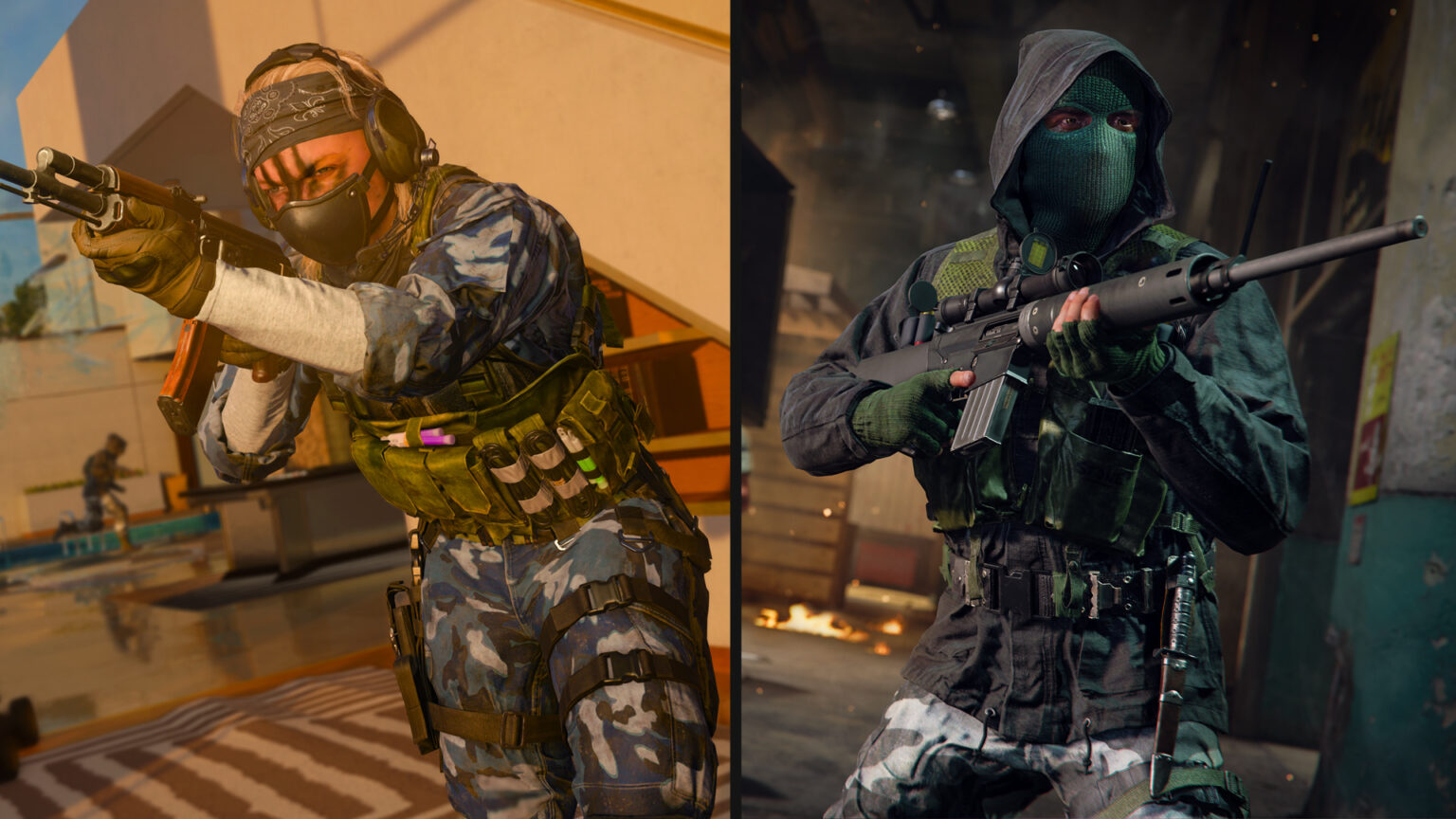In the ever-evolving world of first-person shooters, Call of Duty games have a long-standing reputation for delivering high-octane action and a thrilling multiplayer experience. Yet, one issue has haunted players across the Call of Duty series: cheating. To counter this persistent threat, “Call of Duty: Black Ops 6,” released on October 25, has launched with the latest iteration of RICOCHET Anti-Cheat, a sophisticated AI-driven toolset designed to detect, track, and ban cheaters swiftly.
But how effective is this new anti-cheat technology, and can it create a fairer environment for players? Let’s dive into how the RICOCHET Anti-Cheat system works, what improvements it brings to “Black Ops 6,” and whether it holds the potential to finally curb cheating in the Call of Duty universe.
What is RICOCHET Anti-Cheat, and Why Does It Matter?
RICOCHET Anti-Cheat is Activision’s comprehensive solution to combat cheating across its Call of Duty franchise. First introduced in “Call of Duty: Warzone” and “Modern Warfare,” this anti-cheat system operates at a kernel level on PCs, allowing it to detect and prevent cheater tactics from within the game’s core. The system was designed to monitor and address unfair advantages like aim bots, wall hacks, and other unauthorized modifications that ruin gameplay for legitimate players.
For “Black Ops 6,” RICOCHET Anti-Cheat has been updated with advanced machine learning capabilities, data-driven behavior models, and real-time monitoring techniques. The system aims to reduce what Activision calls “Time to Action”—the time it takes to identify, catch, and ban cheaters—down to within an hour of gameplay. This upgrade represents a massive leap in Activision’s approach to fighting cheaters, as the team hopes to make “Black Ops 6” a safer and fairer environment for all players.
How RICOCHET Anti-Cheat Works in Black Ops 6
1. Kernel-Level Driver Integration
The kernel-level driver in RICOCHET Anti-Cheat is critical to its success. Operating close to the system’s core, this driver enables the anti-cheat to monitor and control interactions that standard anti-cheat measures might miss. By running at such a low level, RICOCHET can detect unauthorized software interactions before they affect gameplay. This makes it particularly effective against external cheats that might otherwise bypass typical anti-cheat systems.
2. Real-Time Data Analysis and Machine Learning
In “Black Ops 6,” RICOCHET Anti-Cheat incorporates new machine-learning detection models that analyze player behavior in real-time. This data-driven approach allows the system to identify suspicious patterns and respond more quickly to cheater activity. By leveraging AI, RICOCHET can distinguish between legitimate high-skill play and the abnormal accuracy or speed that cheating software provides.
For instance, data from the Call of Duty League and player matches helps refine these models, training the system to recognize the difference between skilled players and cheats with uncanny precision.
3. Innovative Player Behavior Models
Activision’s team has placed a strong focus on understanding and categorizing player behavior. RICOCHET Anti-Cheat uses complex behavior profiles to detect deviations that might indicate cheating. If a player exhibits behavior outside expected parameters—such as consistently inhuman accuracy or repeated gameplay anomalies—the system flags them for closer inspection. These innovations are designed to ensure that legitimate players aren’t penalized while quickly identifying cheaters.

How Effective Is RICOCHET in Black Ops 6?
Since the release of “Black Ops 6,” reports indicate that RICOCHET has been largely effective in removing cheaters from the game, often within a few matches or even just a few hours of gameplay. According to Activision, during the beta phase, anti-cheat adjustments enabled the system to cut down “Time to Action” significantly. By the second weekend of beta testing, 25% of bans were executed within the first match a cheater played.
However, some players still report encounters with cheaters, raising the question of whether RICOCHET is fast enough to stop cheaters from ruining games. Despite the advancements, the system occasionally allows cheaters a brief window to cause disruptions before they’re removed. Activision’s commitment to decreasing the response time further could potentially solve this problem, but for now, the system may not fully eliminate the frustration of encountering a cheater.
What Sets RICOCHET Apart from Other Anti-Cheat Solutions?
RICOCHET Anti-Cheat has introduced a host of new detection and mitigation techniques, which set it apart from traditional anti-cheat programs:
- Instant Mitigation Tactics: RICOCHET applies unique in-game punishments for detected cheaters in real time, including features like the Damage Shield, which prevents cheaters from causing damage, and Hallucination, which manipulates their visuals to hinder gameplay. This innovation both penalizes and deters cheaters while keeping the game fair for everyone else.
- Replay Investigation Tool: This feature allows Activision’s team to review suspicious gameplay footage and further refine RICOCHET’s detection algorithms. Replays are used to confirm cheating behavior and adjust the anti-cheat to identify new tactics.
- Third-Party Hardware Detection: As cheaters develop new hardware-based methods to bypass anti-cheat software, RICOCHET has responded by detecting and countering these tools, ensuring the system remains effective even against external cheating devices.
These features represent a proactive stance from Activision to outpace cheat developers, who consistently look for ways to exploit games like Call of Duty for profit.
Will RICOCHET Ever Fully Stop Cheating?
Despite its robust capabilities, RICOCHET Anti-Cheat may not completely eliminate cheating. As with any anti-cheat system, the challenge is ongoing. Cheaters are constantly developing new software and tactics, and some can adapt to the latest anti-cheat updates. Nonetheless, Activision has made clear its commitment to tackling cheating head-on, not just with current technology but with plans to expand RICOCHET’s capabilities in the future.
According to Activision, future updates will focus on building more AI-based behavioral models, which could make it harder for cheaters to evade detection. These models use data from professional and casual matches alike to create a more sophisticated framework for identifying suspicious activity. Additionally, the RICOCHET team plans to continue improving the Time to Action metric, with a long-term goal of removing cheaters within just one hour of their first offense.
Final Thoughts: The Future of Fair Play in Call of Duty
The launch of “Call of Duty: Black Ops 6” and the latest iteration of RICOCHET Anti-Cheat have brought new hope to the Call of Duty community. While it’s clear that RICOCHET has made substantial progress in catching and banning cheaters, the battle is far from over. Cheaters may still find ways to infiltrate games, but with consistent updates and Activision’s commitment to transparency, players can expect a fairer gaming experience in “Black Ops 6” than in previous entries.
For players frustrated by the presence of cheaters, RICOCHET represents a promising step forward. With its advanced machine learning, kernel-level monitoring, and real-time behavior analysis, RICOCHET Anti-Cheat may not be the ultimate solution, but it’s closer than ever to creating a cheat-free Call of Duty experience. The days of cheaters reigning unchallenged in Call of Duty might finally be numbered, thanks to the relentless efforts of #TeamRICOCHET.
For more updates on RICOCHET and other anti-cheat developments, keep an eye on @CODUpdates for real-time news.


